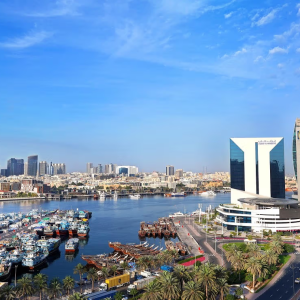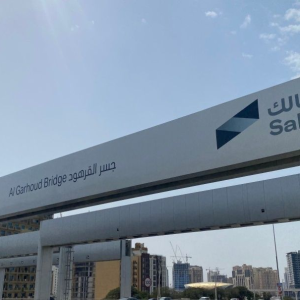Whether you’re a fresh graduate, a mid-level professional, or someone relocating to the UAE for better jobs opportunities, the one thing you’ll absolutely need is a strong CV. Not just any resume, but one that speaks directly to UAE employers — clear, relevant, and to the point.
In the UAE, hiring managers receive hundreds of CVs daily. That means your resume has less than 10 seconds to impress. If you’re feeling overwhelmed about how to write the perfect CV that lands interviews, you’re not alone. But with the right format, strategy, and keywords, you can increase your chances of getting noticed and hired.
Let’s break down how to craft a CV that actually works in the UAE job market.

Understand What UAE Employers Really Look For
Recruiters in Dubai, Abu Dhabi, and other Emirates are usually scanning for three main things: relevance, clarity, and professionalism. They don’t want long, flashy essays. They want simple, direct answers to the question: Is this person suitable for the role?
They’re also looking at your work eligibility (visa status), communication skills, and how well you understand UAE market dynamics. So your CV should not just show what you’ve done — it should reflect how you’ll add value in this region.

Choose the Right Format — Functional Over Fancy
Your CV format needs to be clean and professional. Avoid over-designed templates unless you’re in a creative field. The reverse-chronological format works best in the UAE, where your most recent experience comes first. This gives recruiters an immediate sense of your current skill level.
Use clear headers, bullet points, and 1-2 fonts max. Save the file in PDF format with a simple name like: YourName_CV_UAE.pdf.
Keep It Concise — Ideal Length Is 1–2 Pages
Don’t treat your CV like a biography. UAE employers prefer resumes that are between 1 to 2 pages. Anything longer than that might not even get read.
Be strategic. Only include information relevant to the job you’re applying for. Tailor your CV for every application. One-size-fits-all doesn’t work anymore.
What to Include in Your UAE CV
Here’s what your UAE CV must have:
1. Personal Information
Include your full name, mobile number, email, current location, and visa status (like Visit Visa, Employment Visa, Spouse Visa, etc.). You can also add your LinkedIn profile and, in some cases, a professional photo (optional unless the job specifically asks).
Tip: Use a professional email address. Avoid nicknames or old-school IDs like ‘cooldude123@gmail.com’.
2. Professional Summary (Not an Objective)
Replace the old-school ‘Objective’ section with a Professional Summary. This is a short 2-3 line intro at the top of your CV that gives recruiters a snapshot of who you are.
Example:
“Results-driven digital marketing specialist with 5+ years of experience in SEO, content strategy, and paid campaigns across FMCG and e-commerce. Currently seeking opportunities in UAE to drive brand visibility and lead generation.”
This makes your profile look crisp and confident.
3. Key Skills / Core Competencies
Make a neat bullet list of your top 8–12 hard and soft skills. Use keywords from the job description. This not only helps recruiters but also beats ATS (Applicant Tracking Systems) that scan your resume for keywords.
Examples:
• Financial Reporting
• Digital Marketing
• Budget Planning
• Client Relationship Management
• Adobe Photoshop
• Team Leadership
• MS Excel
• CRM Tools like Salesforce or HubSpot

4. Work Experience
List your experience in reverse order: latest job first. Each entry should include:
- Job Title
- Company Name and Location
- Duration (Month & Year – Month & Year)
- Bullet points for achievements and responsibilities
Focus on results. Use action words like “led,” “managed,” “increased,” “developed,” or “reduced.” Quantify your success when possible.
Example:
Sales Executive – XYZ Trading, Dubai
March 2021 – June 2024
• Achieved 125% of monthly targets for six consecutive quarters
• Built B2B relationships with over 100 corporate clients
• Introduced a CRM tracking system that improved lead conversion by 18%
This kind of phrasing shows you’re result-oriented — which is what employers love.
5. Education
Keep it clean and clear. Include degree, institution name, country, and graduation year. If you’re a fresh graduate, list relevant coursework or academic projects.
Example:
Bachelor of Business Administration
Manipal University, Dubai – 2020
6. Certifications and Courses (Optional but Strongly Recommended)
If you’ve done any online courses (LinkedIn Learning, Coursera, Google Certificates, etc.) — especially relevant to your field — list them here.
Example:
• Google Ads Certification – 2024
• HubSpot Inbound Marketing Course – 2023
It shows you’re upskilling and serious about staying updated.
7. Languages and Tech Tools (Especially for UAE)
The UAE is multicultural. If you speak multiple languages, mention them. Arabic, English, Hindi, Urdu, and Tagalog are commonly appreciated depending on the industry.
Also, mention software/tools you’re familiar with — such as AutoCAD, SAP, Canva, QuickBooks, etc.
8. References (Optional)
You can write “References available on request.” There’s no need to add names and contact info unless it’s a job requirement.
Optional But Good: Add a Cover Letter
Many candidates ignore this step. But a short, customized cover letter can increase your chances. Especially in the UAE, where hiring managers appreciate personal initiative and strong communication.
A good cover letter should:
- Greet the recruiter or company by name if possible
- Briefly explain why you’re applying
- Highlight your top 2–3 achievements
- Express excitement to join their team
- Keep it to 1 page max
Avoid These Common UAE CV Mistakes
- Adding too much personal info: Skip date of birth, religion, or marital status unless asked
- Too many buzzwords without proof: Anyone can write “team player” — show what you actually did
- No tailoring: Don’t send the same CV to every job
- Typos or grammar issues: In a city where communication matters, this can cost you an interview
- Adding salary expectations on the CV: Discuss salary in the interview, not before
Do You Need a Photo on Your UAE CV?
This is a tricky one. In general, a professional photo is optional. But for industries like hospitality, aviation, sales, media, or front desk roles, a clean headshot is often expected.
If you include one, make sure it’s recent, with formal clothes, neutral background, and a friendly yet professional expression.
How to Optimize Your CV for Online Job Portals
Most UAE employers use ATS software when filtering resumes on sites like Bayt, Naukrigulf, Indeed UAE, Dubizzle, and LinkedIn Jobs.
To beat the bots:
- Use exact keywords from job descriptions
- Keep formatting simple (no tables, graphics, or columns)
- Avoid uploading scanned images or Word files — use PDF
Also, make sure your LinkedIn profile is updated and aligned with your CV. Many recruiters check it before shortlisting.
Tailor Your CV for Dubai vs. Abu Dhabi vs. Sharjah
While all Emirates are part of the UAE, the job culture slightly varies. For example, Dubai is fast-paced and startup-heavy, Abu Dhabi leans toward government and oil sectors, while Sharjah may prioritize education or cultural sectors.
Research the company’s tone, sector, and values before applying. Even tweaking your summary or keywords to match their tone can help you stand out.
Final Words: Confidence Is Key
Writing a CV for UAE jobs isn’t about being perfect — it’s about being clear, relevant, and confident. Your CV is your first handshake with a potential employer. Make it warm, professional, and customized.
Even if you’re starting small or switching industries, your story matters. Every job seeker in the UAE started somewhere. So take a deep breath, follow this guide, and hit send — your next opportunity might be one CV away.
Follow us on instagram: UAE STORIES
Read More: Flydubai Aircraft Maintenance Centre: A Major Step Towards Operational Excellence













